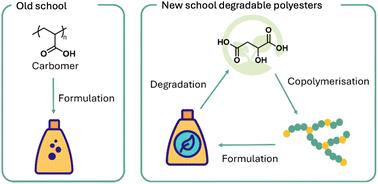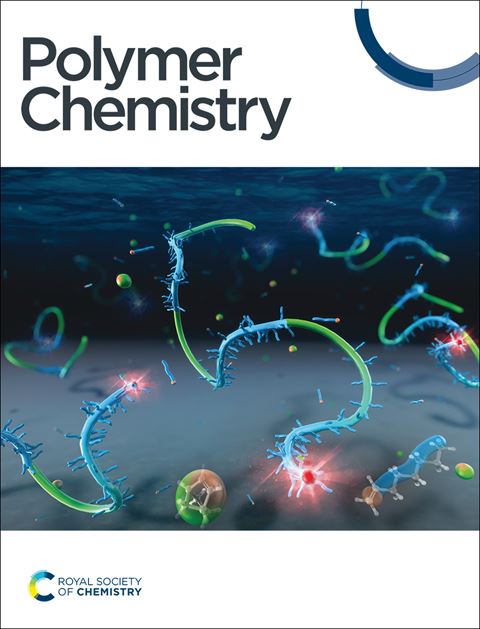Poly(malic acid) copolymers as degradable rheology modifiers in aqueous formulations†
IF 4.1
2区 化学
Q2 POLYMER SCIENCE
引用次数: 0
Abstract
Polymeric rheological modifiers help tailor formulations to specific applications but many current technologies are poorly bio- or hydrolytically-degradable. This paper investigates the polycondensation of malic acid as an acid-rich branching monomer with lactic and glycolic acids to synthesise hydrophilic branched polyesters as potential formulation modifiers. The branching of the copolymers was characterised using quantitative 2D NMR spectroscopy and Mark–Houwink plots measured by gel permeation chromatography. The viscoelastic properties of the copolymers in solution were assessed within a shampoo formulation and showed increased viscosity and elastic behaviour compared to control samples. The formulations are hydrolytically degradable, with the performance of the shampoo formulations deteriorating over time.


求助全文
约1分钟内获得全文
求助全文
来源期刊

Polymer Chemistry
POLYMER SCIENCE-
CiteScore
8.60
自引率
8.70%
发文量
535
审稿时长
1.7 months
期刊介绍:
Polymer Chemistry welcomes submissions in all areas of polymer science that have a strong focus on macromolecular chemistry. Manuscripts may cover a broad range of fields, yet no direct application focus is required.
 求助内容:
求助内容: 应助结果提醒方式:
应助结果提醒方式:


